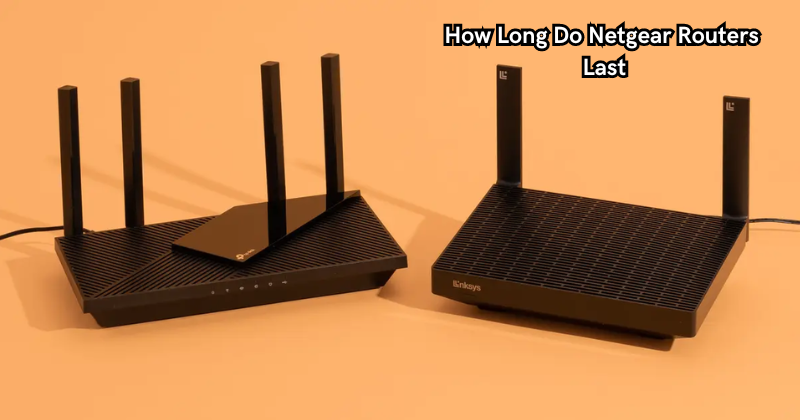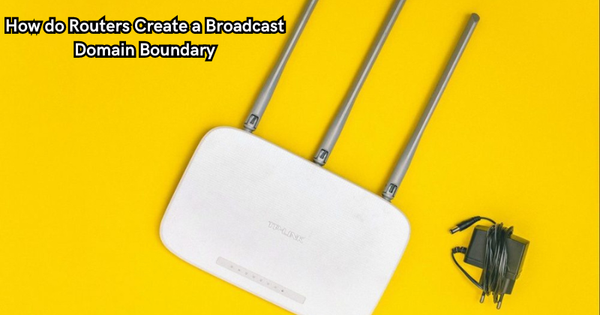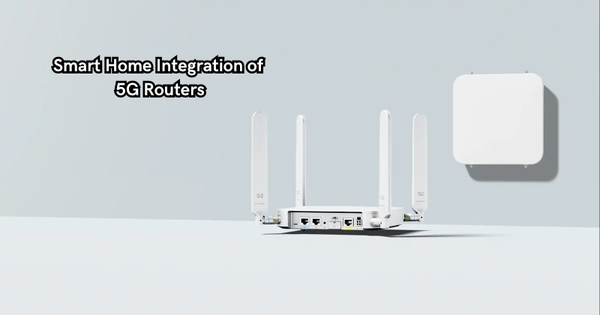Ever wondered about the lifespan of your technology? In the realm of networking devices, such as Netgear routers, longevity is a key consideration for both functionality and investment value.
Netgear routers, known for their reliability and performance, typically have a lifespan that can extend for several years. Factors like usage patterns, maintenance, firmware updates, and technological advancements all play a role in determining how long a Netgear router lasts.
Understanding the longevity of these essential networking tools can help users make informed decisions about when to upgrade or replace their routers to ensure optimal connectivity and performance in today's fast-paced digital landscap
What do Routers Do?
Before delving into the lifespan of Netgear routers, it is essential to understand their purpose. Routers are networking devices that connect multiple devices to a single internet source and allow them to communicate with each other. They act as the gateway between your local area network (LAN) and wide area network (WAN). In simpler terms, routers bring the internet into your home or office and allow your devices to access it.
Moreover, routers also help manage internet traffic and prioritize bandwidth usage. This is especially important in homes or offices with multiple devices connected to a single network, ensuring that each device receives the necessary bandwidth for optimal performance.
Internet service provider (ISP) speeds and router capabilities also play a significant role in the overall speed and performance of your home or office network. Internet speed is measured in megabits per second (Mbps), and a quality router can support high speeds, allowing for faster data transfer and better performance.
What Are 4 Types of Routers?
The four main types of routers available in the market today are wireless, wired, core, and edge routers. Each type serves a specific purpose in a network setup and has its own lifespan considerations.
- Wireless routers: These are the most common type of routers used in homes and small businesses. They use WiFi technology to provide wireless internet access to multiple devices simultaneously. WiFi router technology is continually evolving, and newer models with advanced features are released regularly.
- Wired routers: These are similar to wireless routers in functionality but use Ethernet cables instead of WiFi for internet connectivity. Ethernet cable connections are generally more stable and can provide faster internet speeds.
- Core routers: These are high-end enterprise-level routers used by internet service providers and large businesses. Mesh router systems, such as Netgear's Orbi, can also fall under this category. The lifespan of core routers can vary significantly, with some lasting up to 10-15 years with proper maintenance and upgrades.
- Edge routers: These are specialized routers that connect multiple networks together, such as home networks to the internet or branch offices to a main office network. Their lifespan can range from 5-7 years, depending on usage and maintenance.
WiFi router technology is continually evolving, and newer models with advanced features are released regularly. End-of-life (EOL) and end-of-support (EOS) for specific router models vary, but generally, manufacturers provide firmware updates and technical support for 3-5 years after a product's release.
Overview Netgear Router Lifespan
When it comes to the lifespan of Netgear routers, there is no one-size-fits-all answer. The longevity of a router can vary depending on various factors, including usage patterns and environmental conditions.
For instance, a router that is used for basic tasks like web browsing and light streaming may last longer than one that is constantly under heavy load from online gaming or large file downloads.
Proper maintenance, such as keeping the router clean and dust-free, can also contribute to extending its lifespan. Regularly updating the firmware is essential for both security and performance purposes, as it ensures that the router is running on the latest technology and fixes any bugs or vulnerabilities.
Additionally, advancements in networking technology can also impact a router's lifespan. For example, as more and more devices become compatible with newer networking standards like WiFi 6, older routers may become obsolete sooner than expected.
Factors Affecting Netgear Router Lifespan
So many factors can influence the longevity of a Netgear router, some of which may be within the user's control while others are not. Here are some key factors to consider:
Usage Frequency and Patterns
As mentioned earlier, the frequency and intensity of router usage can significantly impact its lifespan. Heavy usage, such as constant streaming or online gaming, can put more strain on the router's hardware components, which may lead to wear and tear over time. On the other hand, occasional light usage may prolong its lifespan.
Maintenance
Proper maintenance of a Netgear router can go a long way in ensuring its longevity. Simple tasks like regularly cleaning dust and debris from the router's vents and updating the firmware can help prevent hardware failures and improve overall performance.
Environmental Conditions
The environment in which a router is used also plays a role in its lifespan. Factors like temperature, humidity, and exposure to sunlight can affect the router's internal components and potentially shorten its lifespan.
Technological Advancements
As technology continues to evolve at a rapid pace, newer networking standards and devices may render older routers obsolete sooner than expected. It is essential to stay informed about advancements in networking technology and consider upgrading or replacing a router when necessary to keep up with the latest standards and devices. Security updates are also necessary to protect against cyber threats and keep the router functioning optimally.
How Long Do Netgear Routers Last?
Based on the factors mentioned above, it is difficult to determine the exact lifespan of Netgear routers. However, with proper maintenance and usage patterns, a Netgear router can easily last anywhere from 3-5 years or even longer.
In some cases, users may choose to upgrade their router before its natural lifespan ends in order to take advantage of newer features and capabilities. This can help ensure that their network remains up-to-date and optimized for the latest technologies.
Tips for Extending the Lifespan of Netgear Routers
While the longevity of a Netgear router can vary depending on several factors, there are some tips that users can follow to help extend its lifespan:
- Regularly update firmware: As mentioned before, keeping the router's firmware up-to-date is crucial for both security and performance purposes. Network security threats are constantly evolving, and firmware updates help protect against them.
- Keep the router clean: Dust and debris buildup can affect a router's internal components, so regular cleaning is vital.
- Use a surge protector: Power surges can damage a router's hardware, so using a surge protector can help prevent this.
- Monitor usage patterns: Being aware of how often and for what tasks the router is being used can help adjust usage habits to prolong its lifespan.
- Stay informed about technological advancements: Keeping up with new networking standards and devices can help determine when it's time to upgrade or replace a router.
These tips, along with proper care and usage, can help users get the most out of their Netgear routers and ensure optimal performance and longevity.
5 Signs You Need a New Router
While Netgear routers are known for their durability, there may come a time when it's necessary to replace or upgrade. Here are some signs that it may be time for a new router:
- Constant connectivity issues: If your router is frequently dropping connections or experiencing slow speeds, this could indicate hardware failure. Wireless router technology is constantly evolving, so it may be time for an upgrade to a newer model.
- Outdated firmware: When a router is no longer supported with firmware updates from the manufacturer, it can leave it vulnerable to security threats and impact performance.
- Old age: If your router is several years old and struggling to keep up with newer devices and technologies, it may be time for an upgrade. And slower speed connections are not always a sign of hardware failure; the router may just not be equipped to handle the demands of newer devices.
- Physical damage: Accidents happen, and physical damage to a router's hardware can significantly affect its lifespan and performance.
- Lack of support: If the manufacturer no longer supports your router or has been discontinued, it may be time to consider a newer model for better support and functionality.
Wi-Fi router technology has come a long way in recent years, and with the increasing demand for faster and more reliable internet connections, it's essential to keep up with advancements. Wi-Fi signal boosters, range extenders, and mesh networks are just a few of the newer technologies that can help improve network performance and coverage.
How Often Should I Replace My Router?
Generally, it is recommended to replace a router every 3-5 years. However, this can vary depending on usage patterns and technological advancements. If you notice any of the signs mentioned above or feel like your current router is not meeting your needs, it may be time to consider an upgrade.
Furthermore, regularly monitoring and maintaining your router can also help extend its lifespan, allowing you to get the most out of your investment. With proper care and consideration for technological advancements, a Netgear router can provide reliable and high-performing internet connectivity for years to come. So, it is essential to stay informed about factors that may affect its lifespan and take necessary steps to ensure its longevity.
FAQs
What are the two main functions of a router?
The two main functions of a router are connecting multiple devices to the internet and directing network traffic between those devices. Routers also have other features, such as security protocols, parental controls, and quality of service (QoS) settings.
How long can Netgear routers typically last in providing a reliable internet connection?
Netgear routers are known for their durability and performance, often lasting several years when properly maintained. With regular firmware updates and adequate care, these routers can sustain a strong WiFi signal and provide a reliable internet connection for an extended period.
Do Netgear routers maintain a decent connection quality over time for uninterrupted internet access?
Netgear routers are designed to offer consistent and stable WiFi signals, ensuring a reliable connection for users. By ensuring proper placement, updating settings, and addressing any interference issues, Netgear routers can maintain a decent connection quality over their lifespan, supporting uninterrupted internet access.
What factors impact the longevity of a Netgear WiFi router in sustaining a strong WiFi signal?
The lifespan of a Netgear WiFi router in delivering a strong WiFi signal depends on various factors such as usage patterns, environmental conditions, firmware updates, and overall maintenance. By addressing these aspects and optimizing router settings, users can prolong the router's lifespan and ensure a reliable WiFi connection.
How does the age of a Netgear router affect its ability to provide a reliable internet connection?
As Netgear routers age, they may experience decreased performance or signal strength compared to newer models. However, with proper care and occasional troubleshooting, older Netgear routers can still deliver a reliable internet connection.
Conclusion
In conclusion, the longevity of Netgear routers hinges on a multitude of factors, including usage patterns, maintenance practices, technological advancements, and environmental conditions.
While the lifespan of a Netgear router can vary depending on these variables, they are generally built to last several years, offering reliable performance and steady internet connectivity.
By staying proactive with firmware updates, optimizing settings, and ensuring proper care, users can extend the lifespan of their Netgear routers and continue to benefit from a robust WiFi signal.



